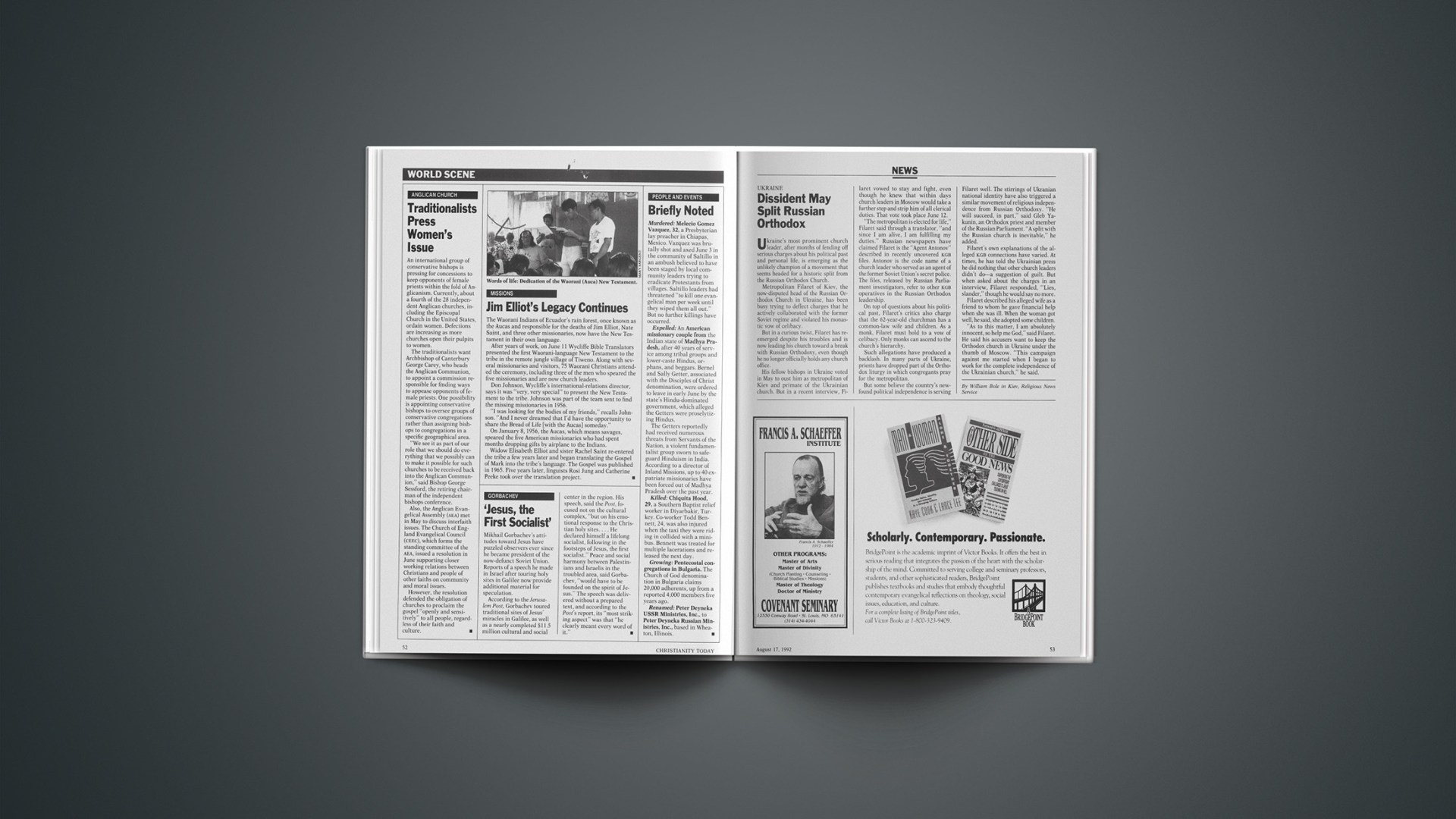Ukraine’s most prominent church leader, after months of fending off serious charges about his political past and personal life, is emerging as the unlikely champion of a movement that seems headed for a historic split from the Russian Orthodox Church.
Metropolitan Filaret of Kiev, the now-disputed head of the Russian Orthodox Church in Ukraine, has been busy trying to deflect charges that he actively collaborated with the former Soviet regime and violated his monastic vow of celibacy.
But in a curious twist, Filaret has re-emerged despite his troubles and is now leading his church toward a break with Russian Orthodoxy, even though he no longer officially holds any church office.
His fellow bishops in Ukraine voted in May to oust him as metropolitan of Kiev and primate of the Ukrainian church. But in a recent interview, Filaret vowed to stay and fight, even though he knew that within days church leaders in Moscow would take a further step and strip him of all clerical duties. That vote took place June 12.
“The metropolitan is elected for life,” Filaret said through a translator, “and since I am alive, I am fulfilling my duties.” Russian newspapers have claimed Filaret is the “Agent Antonov” described in recently uncovered KGB files. Antonov is the code name of a church leader who served as an agent of the former Soviet Union’s secret police. The files, released by Russian Parliament investigators, refer to other KGB operatives in the Russian Orthodox leadership.
On top of questions about his political past, Filaret’s critics also charge that the 62-year-old churchman has a common-law wife and children. As a monk, Filaret must hold to a vow of celibacy. Only monks can ascend to the church’s hierarchy.
Such allegations have produced a backlash. In many parts of Ukraine, priests have dropped part of the Orthodox liturgy in which congregants pray for the metropolitan.
But some believe the country’s new-found political independence is serving Filaret well. The stirrings of Ukranian national identity have also triggered a similar movement of religious independence from Russian Orthodoxy. “He will succeed, in part,” said Gleb Yakunin, an Orthodox priest and member of the Russian Parliament. “A split with the Russian church is inevitable,” he added.
Filaret’s own explanations of the alleged KGB connections have varied. At times, he has told the Ukrainian press he did nothing that other church leaders didn’t do—a suggestion of guilt. But when asked about the charges in an interview, Filaret responded, “Lies, slander,” though he would say no more.
Filaret described his alleged wife as a friend to whom he gave financial help when she was ill. When the woman got well, he said, she adopted some children.
“As to this matter, I am absolutely innocent, so help me God,” said Filaret. He said his accusers want to keep the Orthodox church in Ukraine under the thumb of Moscow. “This campaign against me started when I began to work for the complete independence of the Ukrainian church,” he said.
By William Bole in Kiev, Religious News Service










